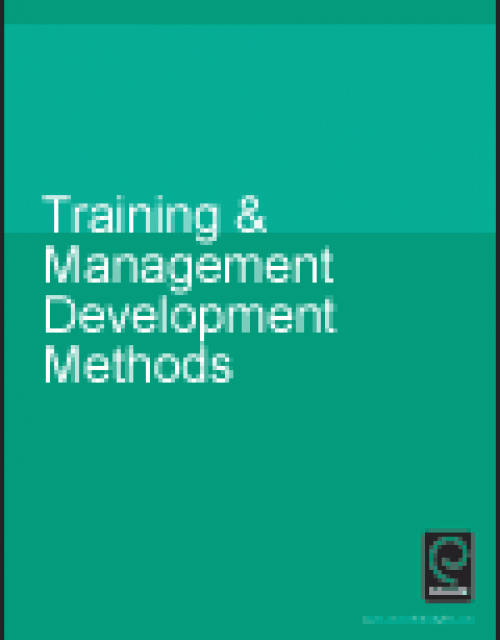Publication records
Subject(s)
Information technology and systems; Technology, R&D management
Keyword(s)
Learning, knowledge acquisition, localization, patent citations, professional service firm
The literature on organizational learning asserts that external learning is often limited geographically and technologically. We scrutinize to what extent organizations acquire external knowledge by accessing external knowledge repositories. We argue that professional service firms (PSFs) grant access to non-localized knowledge repositories and thereby not only facilitate external learning but also help to overcome localization. Focusing on patent law firms, we test our predictions using a unique dataset of 544,820 pairs of EP patent applications. Analyzing patterns of knowledge flows captured in patent citations we find that accessing a PSF’s repository facilitates the acquisition of external knowledge. As the effect is more pronounced for knowledge that is distant to a focal organization we conclude that having access to a knowledge repository compensates for localization disadvantages.
View all ESMT Working Papers in the ESMT Working Paper Series here. ESMT Working Papers are also available via SSRN, RePEc, EconStor, and the German National Library (DNB).
Pages
35
ISSN (Print)
1866–3494
Subject(s)
Information technology and systems; Strategy and general management
Keyword(s)
Corporate IT, IT organization
Journal Pages
33–34
ISSN (Print)
0017-8012
Subject(s)
Information technology and systems; Strategy and general management
Keyword(s)
CIO, CEO, governance, corporate IT
Pages
16
Subject(s)
Economics, politics and business environment; Entrepreneurship; Ethics and social responsibility
Keyword(s)
migration, sustainable development, business, corporate responsibility, remittances
Volume
L
Journal Pages
22–25
Subject(s)
Economics, politics and business environment
Keyword(s)
politics, corporate governance, boards, procurement contracts
JEL Code(s)
G32, G34, G38
Volume
17
Journal Pages
1617–1648
Subject(s)
Marketing
Keyword(s)
product development, marketing strategy, durable goods, quality, signaling game
Our objective is to understand how a firm’s product development capability (PDC) affects the launch strategy for a durable product that is sequentially improved over time in a market where consumers have heterogeneous valuations for quality. We show that the launch strategy of firms is affected by the degree to which consumers think ahead. However, only the strategy of firms with high PDC is affected by the observability of quality. When consumers are myopic and quality is observable, both high and low PDC firms use price skimming and restrict sales of the first generation to consumers with high willingness to pay (WTP). A high PDC firm, however, sells the second generation broadly while a low PDC firm only sells the second generation to consumers with low WTP. When consumers are myopic and quality is unobservable, a firm with high PDC signals its quality by offering a low price for the first generation, which results in broad selling. The price of the second generation is set such that only high WTP consumers buy. A firm with low PDC will not mimic this strategy. If a low PDC firm sells the first generation broadly, it cannot discriminate between the high and low WTP consumers. When consumers are forward looking, a firm with high PDC sells the first generation broadly. This mitigates the “Coase problem” created by consumers thinking ahead. It then sells the second generation product only to the high WTP consumers. In contrast, a firm with low PDC does the opposite. It only sells the first generation to high WTP consumers and the second generation broadly.
With permission of Elsevier
Volume
30
Journal Pages
276–291
Subject(s)
Human resources management/organizational behavior
Keyword(s)
executive development, case studies, leadership styles, learning methods
JEL Code(s)
M00
Argues that the developmental edge in leadership development is working towards bridging the “knowing-doing” gap through the use of enactments to thicken the learning from existing cases to surface differences between espoused theories and actual behaviors in order to get feedback from fellow learners and faculty.
Multiple enactments of difficult encounters in a case, like sports drills, build resilience, skills and repertoires for engaging with the increased levels of ambiguity and uncertainty in current business contexts. This practical method builds on an existing vast resource of cases to visceralize learning via enactments of tactics of effective and ineffective influence—in essence addressing the “knowing-doing gap.”
With permission of Emerald
Volume
27
Journal Pages
3.15–3.26
Subject(s)
Human resources management/organizational behavior; Marketing
Keyword(s)
Corporate social responsibility, job product, employee job performance, cluster analysis
This paper examines how employees react to their organizations’ corporate social responsibility (CSR). Drawing upon research in internal marketing and psychological contract theory, we conceptualize that employees have multi-faceted job needs (i.e., economic, developmental, and ideological needs) and that CSR programs constitute an important means to fulfill these needs. Based on cluster analysis, we identify three employee segments, Idealists, Enthusiasts, and Indifferents, who vary in their multi-faceted job needs and, consequently, their demand for organizational CSR. We further find that an organization’s CSR programs generates favorable employee related outcomes, such as job satisfaction and reduction in turnover intention, partially by fulfilling employees’ ideological and developmental job needs. Finally, we find that CSR proximity strengthens the positive impact of CSR on employee-related outcomes. This research reveals significant employee heterogeneity in their demand for organizational CSR and sheds light on the underlying mechanisms linking CSR to employee-related outcomes. We end with a discussion about the theoretical and practical implications of our research.
View all ESMT Working Papers in the ESMT Working Paper Series here. ESMT Working Papers are also available via SSRN, RePEc, EconStor, and the German National Library (DNB).
Pages
47
ISSN (Print)
1866–3494
Subject(s)
Economics, politics and business environment
Measuring upward pricing pressure (UPP) has recently been proposed by Farrell and Shapiro (2010) as an alternative screening device for horizontal mergers. We extend the concept of UPP to two-sided markets. Examples of such markets are the newspaper market, where the demand for advertising is related to the number of readers and the market for online search, where advertising demand depends on the number of users. The formulae we derive depend on four sets of diversion ratios that can either be estimated using market-level demand data or elicited in surveys. In an application, we show that it is important to take the two-sidedness of the market into account when evaluating UPP.
© 2013 The Author(s). The Economic Journal © 2013 Royal Economic Society
Volume
123
Journal Pages
F505–F523
Subject(s)
Human resources management/organizational behavior
Keyword(s)
Error management, communication, leadership, teams, organizational behavior
Mistakes are unavoidable. Yet in most organizations, they are rarely thoroughly examined. An exception is the high-risk aviation industry, where experts have established an open and democratic culture for dealing with error. Confronting Mistakes draws on this expertise to initiate a new framework for active error management relevant to wider industry. By analyzing dramatic aviation accidents, Jan Hagen presents a new approach to error management in business to reveal how diagnostic, error-permissive behaviour is the first step towards turning mistakes into learning opportunities.
Pages
200
ISBN
9781137276179

